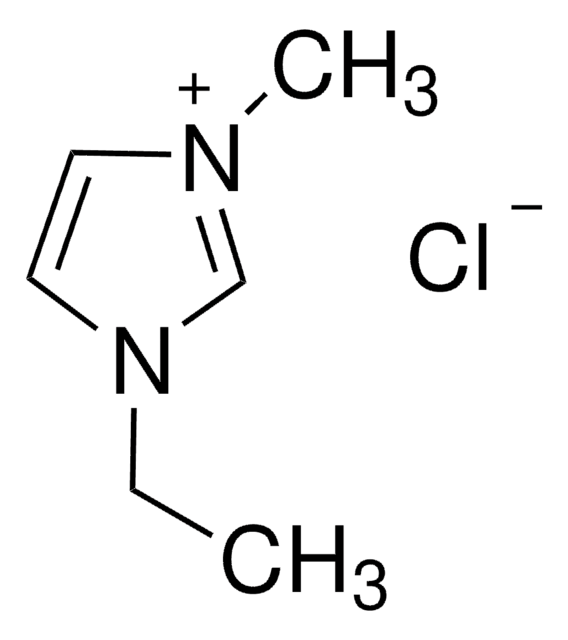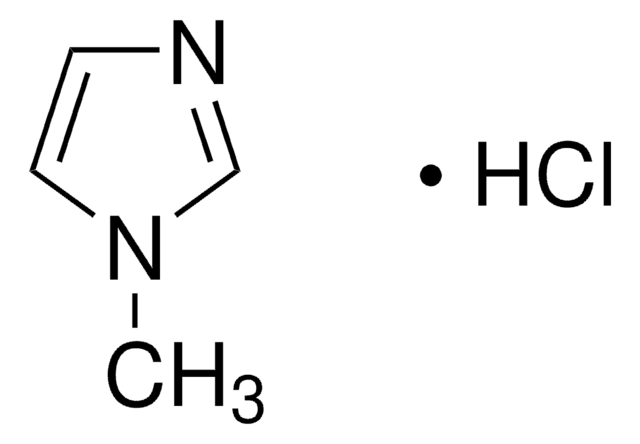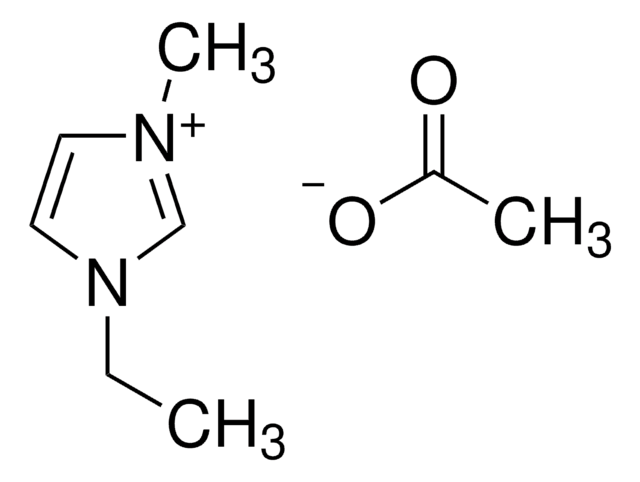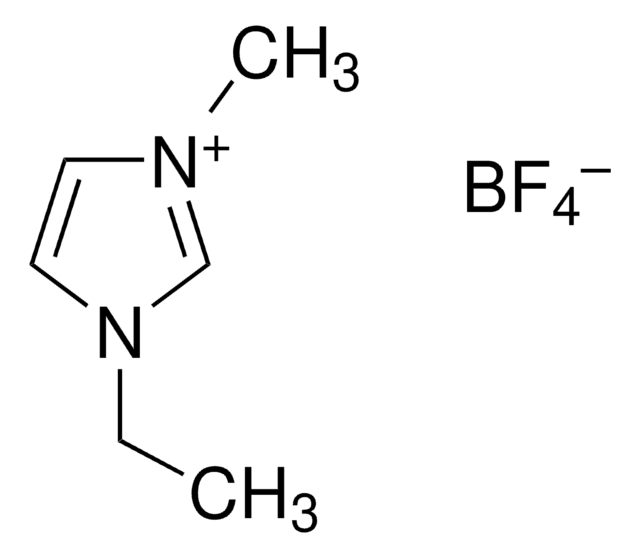53096
1-Ethyl-3-methylimidazolium chloride
dry, ≥98.0% (T)
Synonym(s):
1-Methyl-3-ethylimidazolinium chloride, 1-Methyl-3-ethylimidazolium chloride, 3-Ethyl-1-methylimidazolium chloride, N-Methyl-N′-ethylimidazolium chloride
About This Item
Recommended Products
Assay
≥98.0% (T)
form
solid
impurities
≤800 ppm water
mp
77-79 °C (lit.)
SMILES string
[Cl-].CCn1cc[n+](C)c1
InChI
1S/C6H11N2.ClH/c1-3-8-5-4-7(2)6-8;/h4-6H,3H2,1-2H3;1H/q+1;/p-1
InChI key
BMQZYMYBQZGEEY-UHFFFAOYSA-M
Looking for similar products? Visit Product Comparison Guide
Signal Word
Warning
Hazard Statements
Precautionary Statements
Hazard Classifications
Acute Tox. 4 Oral - Eye Irrit. 2
Storage Class Code
11 - Combustible Solids
WGK
WGK 1
Flash Point(F)
370.4 °F - closed cup
Flash Point(C)
188 °C - closed cup
Personal Protective Equipment
Certificates of Analysis (COA)
Search for Certificates of Analysis (COA) by entering the products Lot/Batch Number. Lot and Batch Numbers can be found on a product’s label following the words ‘Lot’ or ‘Batch’.
Already Own This Product?
Find documentation for the products that you have recently purchased in the Document Library.
Customers Also Viewed
Articles
Ionic Liquids have been thoroughly investigated as solvents in most types of catalytic reactions. Their merit lies in the ease with which their physical–chemical properties can be tuned by varying either the anion, the cation, or its substitution pattern.
Our team of scientists has experience in all areas of research including Life Science, Material Science, Chemical Synthesis, Chromatography, Analytical and many others.
Contact Technical Service







